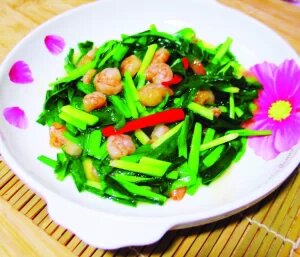
Phlegm-damp constitution is a relatively common type of constitution. When the body’s organs, yin and yang are imbalanced, and the circulation of qi, blood, and body fluids is disrupted, phlegm-damp can easily form. This state is referred to as phlegm-damp constitution, often seen in obese individuals or those who were originally thin but have gained weight. Zhu Danxi proposed that “fatty individuals have more phlegm, fat people have more dampness, and thin people have more heat.” Individuals with this constitution often exhibit obesity, a soft and full abdomen, oily skin on the face, excessive sweating that is sticky, chest tightness, phlegm accumulation, a pale yellowish complexion, slightly swollen eyelids, easy fatigue, a large tongue with a white greasy or sweet coating, a heavy body feeling, a preference for rich, sweet, and sticky foods, normal or loose stools, and infrequent or slightly turbid urination. Their temperament tends to be mild and steady, often patient. This constitution type is prone to diseases such as hypertension, diabetes, obesity, hyperlipidemia, asthma, gout, coronary heart disease, metabolic syndrome, and cerebrovascular diseases.
Manifestations of Phlegm-Damp Constitution
Individuals with phlegm-damp constitution are prone to obesity, heaviness, and a lack of luster in their complexion, often feeling drowsy, with phlegm in the throat, a craving for rich foods, laziness, excessive sleepiness, a heavy body feeling, a sticky mouth, or loose stools, with a slippery and soft pulse, a large tongue, and a greasy tongue coating.
Regulating Phlegm-Damp Constitution
Individuals with phlegm-damp constitution often have significantly higher cholesterol, triglycerides, very low-density lipoprotein, and blood sugar levels compared to those without this constitution, commonly presenting with fatigue, dizziness, excessive phlegm, edema, and loud snoring during sleep.
Health Preservation Tips for Phlegm-Damp Constitution
1. Increase physical activity to strengthen bodily functions and improve spleen and stomach health.
2. Avoid staying in damp environments for long periods, especially during rainy seasons to prevent dampness invasion. Individuals with this constitution should regularly check their blood sugar, blood lipids, and blood pressure.
3. Those who are excessively sleepy should gradually reduce their sleep time and engage in more outdoor activities to activate bodily functions with sunlight.
4. Take hot showers to promote sweating; wear loose clothing made of breathable natural fibers like cotton, linen, or silk to facilitate sweat evaporation and eliminate internal dampness.
5. Pay attention to warmth. Dampness moves with warmth and solidifies with cold. Cold weather is detrimental to the transformation of dampness in the body, often harming the spleen and stomach, making symptoms of phlegm-damp constitution more pronounced in cold weather.
Dietary Adjustments for Phlegm-Damp Constitution
Individuals with phlegm-damp constitution are often overweight, feel heavy and fatigued, and have a preference for rich and heavy foods, often consuming large quantities. Dietary therapy emphasizes avoiding rich and heavy foods, abstaining from alcohol, and avoiding overeating and eating too quickly. It is advisable to consume mild, warm, and balanced foods, with an emphasis on vegetables and fruits. Foods that can disperse phlegm, strengthen the spleen, benefit the kidneys, transform dampness, and promote the flow of the San Jiao (Triple Burner) should be included, such as ginger tea in summer. Control overall caloric intake; generally, light physical labor should be limited to 1200 kcal. Eating smaller, more frequent meals and chewing slowly, with each meal taking 20-30 minutes, is important. A balanced diet is crucial.
Stir-fried Chives with Shrimp
Ingredients: 250g chives, 100g fresh shrimp.
Method: First stir-fry the chives in oil, then add the fresh shrimp and stir-fry for a moment, adding a little pepper (about 0.2g) to finish.

Health Benefits: Strengthens kidney yang, warms the middle, disperses cold, invigorates the stomach, relieves swelling and pain, promotes blood circulation, facilitates lactation, and detoxifies.
Shrimp and Sea Horse with Young Chicken
Ingredients: 20g shrimp, 10g sea horse, 1 young chicken.
Method: Clean the shrimp and sea horse with warm water, soak for 10 minutes, then place them on the cleaned young chicken, adding a little green onion and ginger, and steam until tender. The shrimp, sea horse, and chicken can all be consumed along with the broth.
Health Benefits: Warms the kidneys, strengthens yang, benefits qi, replenishes essence, invigorates blood, and eliminates phlegm-damp.
Daily Living for Phlegm-Damp Constitution
Pay attention to outdoor activities to promote the expansion of yang energy. Choose breathable and loose clothing, avoiding shapewear, and ensure regular sun exposure. In damp and cold climates, reduce outdoor activities and maintain dry and warm indoor air. Minimize air conditioning use and avoid prolonged internet use.
Medicinal Health Preservation for Phlegm-Damp Constitution
Individuals with phlegm-damp constitution often experience symptoms such as cough, asthma, excessive phlegm, dizziness, gastrointestinal discomfort, and vomiting, and are prone to chronic bronchitis, bronchial asthma, emphysema, arteriosclerosis, chronic gastritis, chronic enteritis, and obesity. Therefore, individuals with phlegm-damp constitution can use warming and drying phlegm-relieving herbs for health maintenance. Medicinal treatments should focus on strengthening the spleen and stomach while eliminating phlegm-damp. Herbs such as Dang Shen (Codonopsis), Bian Dou (Lima Bean), Sha Ren (Amomum), Chen Pi (Aged Tangerine Peel), Huai Shan (Chinese Yam), Yi Yi Ren (Job’s Tears), Fu Ling (Poria), Chi Xiao Dou (Adzuki Bean), Dong Gua Pi (Winter Melon Skin), and Bai Jie Zi (White Mustard Seed) have certain phlegm-damp eliminating effects, but they target different areas. For example, Bai Jie Zi and Chen Pi primarily eliminate phlegm-damp from the lungs and upper jiao (upper burner); when combined with Dang Shen and Bian Dou, they treat phlegm-damp in the middle jiao (middle burner); Chi Xiao Dou mainly helps expel dampness through urination. Commonly used Chinese patent medicines for improving phlegm-damp constitution include Er Chen Tang (Two Efficacies Decoction), Shen Ling Bai Zhu San (Ginseng, Poria, and Atractylodes Powder), Jiao Gu Lan Total Glycosides Tablets, and Chen Xia Liu Jun Wan (Six Gentlemen Decoction). If phlegm-damp constitution shows significant symptoms such as particularly sticky and obstructed stools, abdominal bloating, or worsening acne, taking some Chinese medicine is advisable, but remember to “stop when the condition improves” and avoid long-term use.
Exercise for Phlegm-Damp Constitution
Individuals with phlegm-damp constitution often have obesity and fatigue, so it is best to maintain regular physical exercise, such as walking, jogging, ball games, swimming, martial arts, Ba Duan Jin (Eight Pieces of Brocade), Wu Qin Xi (Five Animal Frolics), and various dances. The amount of activity should gradually increase, allowing loose flesh to gradually transform into firm and dense muscle. In terms of qigong, standing postures, health qigong, and longevity qigong are recommended to strengthen qi circulation.

